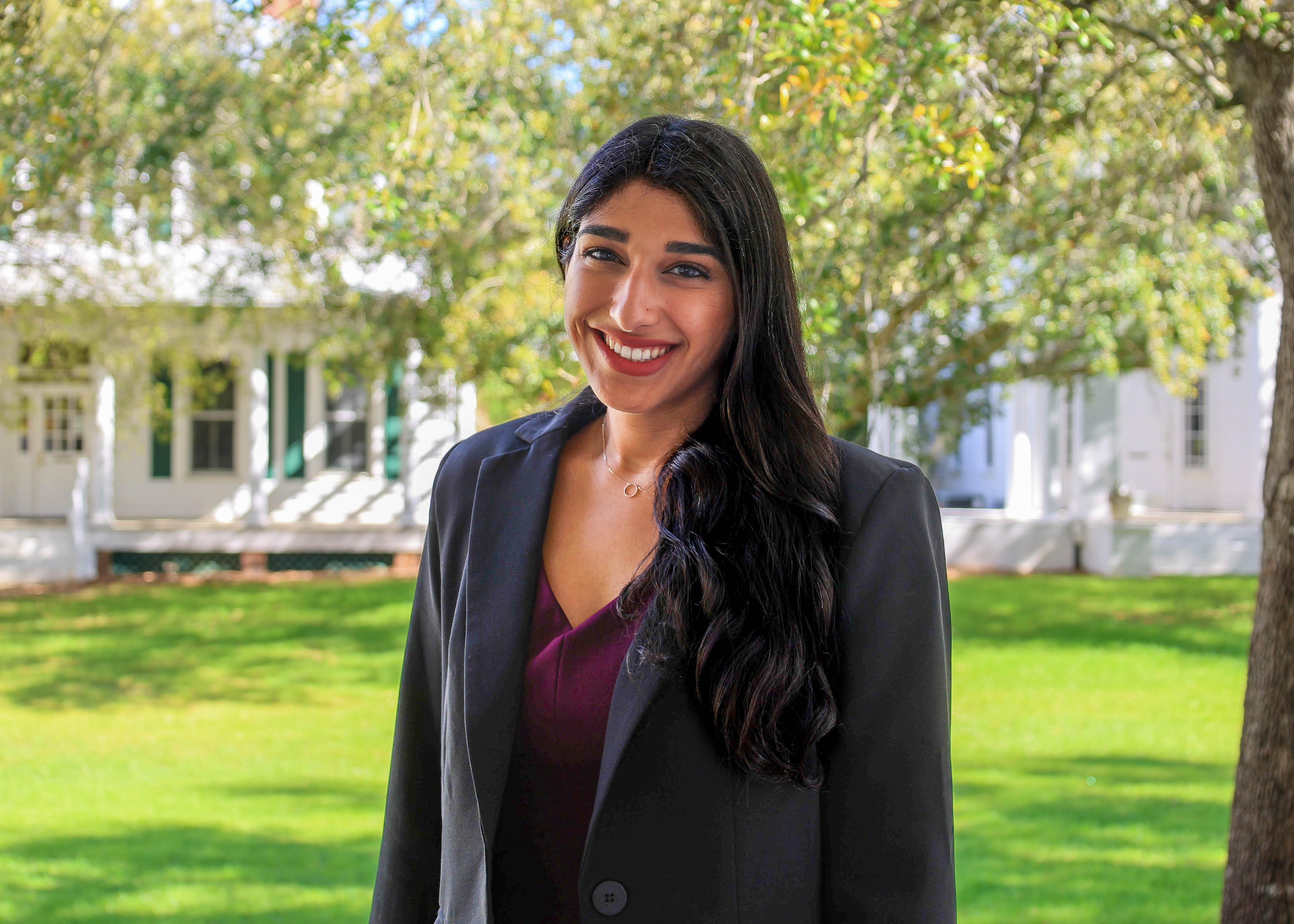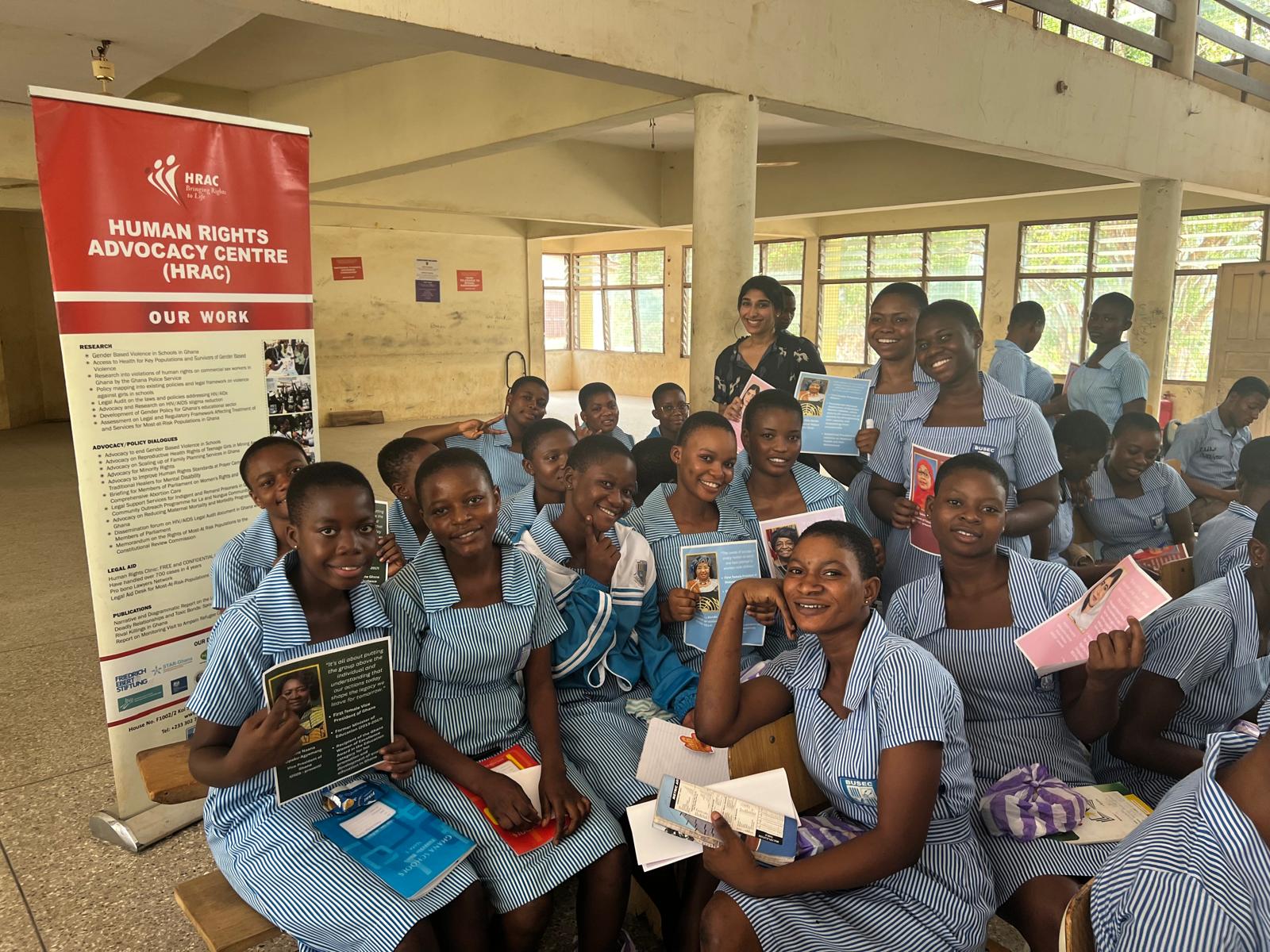My Journey with HRAC in Ghana
By: Ashvi Luthra '25
 Going to Ghana was easily one of the greatest experiences of my life. Not only was the Human Rights Advocacy Center working on an amazing project, but it was made up of amazing people. I am so grateful for their hospitality. The entire trip the team ensured that I felt comfortable and included, and I wish that I could have spent more time with them!
Going to Ghana was easily one of the greatest experiences of my life. Not only was the Human Rights Advocacy Center working on an amazing project, but it was made up of amazing people. I am so grateful for their hospitality. The entire trip the team ensured that I felt comfortable and included, and I wish that I could have spent more time with them!
While I would never claim to be an expert on advocacy campaigns or how to run a project like this, I felt that I immediately understood their approach and why they made the choices that they did. Everything that they did felt so intentional and seemed to mark a clear path for success. An overarching theme from the clinic was that successful campaigns involve leveraging different relationships and pursuing a number of avenues to raise awareness. Here, there were three targets: (1) the local radio station; (2) local leaders; and (3) schools. So much preparation went into ensuring that we could have scheduled and meaningful conversations with each target. This was certainly not something that we could just show up and do, and so I really appreciated how well everything was coordinated for our three day stay. Miss Mod spoke a lot about how many other advocacy organizations in Ghana are just focused on Accra and only do work at the surface level. By contrast, HRAC recognized that while change is easier to see in the city, to actually make this affirmative action bill effective, the only way to make meaningful change in the country was to take initiative in the rural regions.
To start, we visited the local radio station, Dream F.M. When we arrived, 3 members of HRAC, including Miss Mod, were interviewed about the affirmative action bill, as well as why they chose to come to Jasikan. This was critical because at least 1000 people listen to this station. The second day, we reached out to community leaders, including local representatives, teachers, religious leaders, and even a female judge, and parents to come and learn about democracy and this bill. As with other campaigns, connections to those with power are fundamental to a campaign’s success. By having powerful voices advocate for change, those who are reluctant are more likely to be forced to action. Additionally, the voice of a leader is often a signal of what that society is choosing to value. There is also great power in getting influential people from different sects of life because it ensures that the problems are tackled from many different directions.
Finally, by going to the school, we were able to target the demographic that we were trying to help. This part of the project was really focused on ensuring that these girls knew that their voices deserved to be heard and that they had power within them. We wanted them to know that it was ok to have dreams and that they have opportunities to pursue them. Just within four hours we saw the girls’ confidence rise. They were so quiet at first, but by the end the room was loud with chatter and excitement. The hope is that they will carry this confidence and enthusiasm with them long after we are gone.
Overall, I am so grateful to HRAC for giving me this once in a lifetime opportunity. Not only was working on this project very personally fulfilling, but it also gave me the chance to see Ghana. I have left with a great sense of appreciation for Ghana’s stunning natural beauty and hospitable culture, and I hope that I will experience it again in the future.
